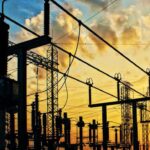As a people, we Nigerians love sports but over the past two decades our love for sports has been met with constant disappointment as the performance of our sports men and women have been declining steadily. We get disappointed because we know that we have an enormous number of young people with enormous raw talent but we have been unable to translate talents into success. Even in the case of the single sport in which we have translated raw talent into the highest levels of competitive skill, football, our collective ranking as a nation has collapsed. We console ourselves negatively by choosing and supporting English Premier- ship clubs. This Olympics has been another occasion in which we have all been disappointed once again by poor performance from the heroes we seek. Our failure in sports is however symptomatic of a deeper failure to implement policies in all aspects of human development and the story of our sports is the story of the nation.
The story of our Olympics is best told by our table tennis star, Segun Toriola. This is the sixth Olympics in which he had rep- resented Nigeria and over the 20 years since his first appearance at the Barcelona Olympics, he has remained our best player, although he had never ever even smelled a medal. Some of the people he was competing against in London had not been born when he was representing Nigeria at Barcelona. Over the 20 years, we had been unable to find and train new table tennis stars. One of our greatest athletes, Mary Onyali, represented us at five Olympics from 1988 to 2004. She won a bronze medal and many other laurels for us. The very fact that we are dependent on old and tired talents is however a huge statement of our refusal to focus on identifying and training new talents.
The irony is that we have an elaborate sports policy that articulates the need to focus on long term elite sport development; in other words, finding very young talents and training them to the highest levels over time. We simply refuse to implement our policy and focus on a fire brigade approach each time a competition approaches and we need to send athletes. Our greatest investment in sports was around the 2003 African Games. In 2001, the government requested the Ministry of Sports and Social Development to map out comprehensive short-term policy proposals on sports development to ensure that the country shines in the COJA 2003 African Games to be hosted in Abuja and the Athens 2004 Olympics. Government, and indeed most Nigerians, were concerned with the aging profile of Nigerian athletes and the consequent decline in performance. The report pointed out that the core problem was the decline of organised sports, except football, in primary and secondary schools in the 1980s and 1990s. This meant that the production line for sports talent had come to a halt. Following presentations to government, a sports policy had been developed and adopted in 1989 under the Babangida Regime. The sports policy had a comprehensive strategy for developing talent in the three categories of under 10, 10 to 18 and 18 years plus categories in the school system to guarantee a production chain of young talents. The 1989 sports policy was never implemented and Nigeria had all along depended on accidentally discovered talents. The 2001 committee updated the 1989 sports policy and worked out a detailed short-term action plan to search for talents in schools in the 2001-2002 periods and embark on an accelerated elite sport athletes’ development programme to produce a new crop of athletes for COJA 2003 and get them to peak at the Athens Olympics.
Government devoted a considerable budget of N25 billion for this sports development programme, which included infrastructural development and cultural shows for COJA. At the end of the day, the stadia and other sports facilities were constructed under the super- vision of presidential commit- tees. A world-class choreographic opening and closing ceremony for COJA was successfully carried out under the coordination of our own Nobel laureate, Professor Wole Soyinka, and a team of excel- lent Nigerian artists, mostly from the Diaspora. This was complemented by an excellent callisthenics performance organised by the Koreans. Committees in the Presidency directly contracted out and supervised all these activities and at the end of the day, the expenditure superseded the allocation and N35 billion was spent. Abuja did host COJA and our athletes and lots of officials went to Athens. However, the core policy decision of identifying new talents, training them and exposing them to national, regional and international com- petitions to raise the profile of our sports never happened because it could only be done by the minis- tries of sports and education; and the Presidency had consistently refused all demands from minis- tries for capital and development projects. Two months before each major sporting event, government releases money for emergency training and preparation of athletes but no government has accepted to implement the core policy of sports development since 1989. As usual, when the then President Obasanjo received the report of the country’s poor performance at the Athens Olympics, he promptly set up another committee under Group Captain Emeka Omeruah on 14 September 2004 to embark on sports policy review process. Please, please, please, Bolaji Abdullahi, don’t set up another commit- tee to investigate why we did poorly in London, everybody knows the answer. I have discussed with the President of the Nigerian Olympic Committee, Sani Ndanusa; he is committed to sports development but he is not a magician; he cannot produce results without resources. In the past, finding talented athletes from senior secondary schools and training them for two months before a competition could produce some results. Today, elite athletes are identified between the ages of five and ten and trained by coaches, physiotherapists, doc- tors and psychologists for ten to fifteen years to prepare them for the Olympics. They are sent to regular competitions during the period and sent for months to high altitude training centres to build their physical endurance. For this year’s Olympics, the United Kingdom invested £300 million (N74 billion) to train their athletes. Nigeria’s total budget was N2 billion and most of it went to pay for trips by officials not training the athletes. We can- not be surprised that we performed so poorly.
Nigeria has invested considerable resources in developing policies. The policy process however ends with the presentation of the policy paper to the President in front of blazing lights and television cameras with the anti-climax being deposing the copies in the store of the Office of the Secretary of the Government – a funeral rite. We need to reverse this process. Let us choose a few disciplines we want to excel in the 2020 Olympics and identify talented primary school kids we want to prepare for the event. Let’s invest the money we spend on sports officials and politicians on these kids and in 2020, we may begin to see positive results.

 Join Daily Trust WhatsApp Community For Quick Access To News and Happenings Around You.
Join Daily Trust WhatsApp Community For Quick Access To News and Happenings Around You.


